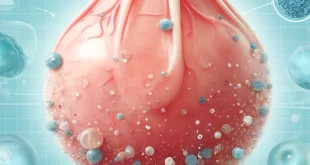Last application date Jan 23, 2022 00:00
Department RE23 – Department of Criminology, Criminal Law and Social Law
Contract Limited duration
Degree PhD degree in criminology or a relevant area
Occupancy rate 100%
Vacancy type Research staff
Job description
Your tasks
We are recruiting one full-time researcher at the postdoctoral level with an interest in doing quantitative analysis.
You will primarily work on the Crime Forager project (see below, The Crime Forager project), a research project in which Optimal Foraging Theory is applied to better understand the target and location choices of illicit graffiti artists. With quantitative analysis techniques you will investigate how features of graffiti images (their nature, and where and when they are painted) are related to features of the environment (e.g., house, street, and neighborhood characteristics). You will have access to previously collected data on illicit graffiti, a range of secondary datasets, and the necessary computational resources (https://www.ugent.be/hpc/en). You will take primary responsibility for presenting intermediate results at international conferences and publishing findings in academic journals. You are encouraged to propose additional ways of developing the theory and methodology of the Crime Forager project.
In addition, you will participate in the activities of Prof. Christophe Vandeviver’s research team (see below, About Prof. Vandeviver and the research team), which includes contributing to ongoing quantitative research. As part of your supporting the research team, you may be asked to contribute to research funding applications and commissioned research, for which you will be acknowledged as appropriate.
English will be the main working language.
The Crime Forager project
The Crime Forager project deals with the study of where and when offenders choose to offend. It comes out of the recognition that the foraging decisions of offenders and animals exhibit many similarities and that using traditional police recorded crime data comes with many disadvantages. Therefore, harnessing the theoretical and methodological advances in the optimal foraging literature as well as studying a highly-visible and ubiquitous offense such as illicit graffiti may allow criminologists to develop a greater understanding of target and location choice by offenders in general. Ultimately, the project aims to develop a foraging framework for offender decision-making and demonstrate its applicability to illicit graffiti behavior.
In the Crime Forager project, you will closely collaborate with Prof. Christophe Vandeviver (project PI) and Prof. Wim Bernasco (NSCR, VU Amsterdam), as well as other scholars as appropriate.
Conditions of employment
- We offer you a full-time research position at postdoctoral level of definite duration of 36 months.
- Your contract will start on 1 May 2022 at the earliest and 1 October 2022 at the latest. The exact starting date will be determined by mutual agreement.
- Your remuneration will be determined by salary scale PD1 to PD4. Several elements, including prior experience and family situation, will be factored into the calculation of the salary offered. Click here for more information about our salary scales.
- As a reference, the minimum starting salary (applicable to someone with 4 years of relevant work experience, without family dependents) is € 2,339.26 net per month (on average across the entire employment period). Click here for more information about cost of living in Belgium.
- On top of your salary, Ghent University offers a number of social benefits, including 36 days of paid holiday leave (on an annual basis, for a full-time job) supplemented by annual fixed bridge days, commuter allowance, hospitalization insurance, childcare services, a wide range of training and education opportunities, access to university restaurants and university sports facilities. Click here for more information about our staff benefits.
- It is possible to make arrangements for remote work and flexible office hours.
- We strive to achieve a healthy work-life balance and nurture a healthy and rewarding work environment in which individual differences are welcomed and valued.
Furthermore, you will be able to develop your academic career in various ways:
- Contributions to presenting and publishing findings will be appropriately acknowledged.
- In addition, you will be able to develop your research skills (e.g., analysis of spatiotemporal data), academic writing skills (e.g., research papers), and other forms of scientific and societal valorization of research (e.g., science communication).
- Candidates who wish to gain experience in acquiring research funding (e.g., by applying for postdoctoral funding and/or being involved in research applications) and/or developing their managerial skills (e.g., by mentoring junior researchers or following up on ongoing research projects) will be given the opportunity to do so and will be supported in their endeavors.
- Initiating new research topics within the group and/or acquiring external research funding is encouraged, supported, and highly appreciated
Job profile
In order to be eligible, applicants must:
- Hold a PhD in criminology or a relevant area (e.g., sociology, psychology, geography, behavioral ecology, statistics) awarded by a non-Belgian university;
- Have obtained their PhD degree at the time of applying, or convincingly demonstrate that they will have this degree in hand by their preferred starting date;
- Not have resided or carried out a main activity (work, study, etc.) in Belgium for more than 24 months in the three years prior to the start of their contract;
- Not have more than six years of relevant work experience at the start of their contract;
- Be ready to relocate to Belgium as their main residence for the time of their contract;
- Be willing to spend (a) period(s) of time abroad as appropriate and to participate in international conferences;
- Be fluent in English as their primary working language, both passively and actively.
In addition, applicants are expected to demonstrate the following:
- Excellent academic writing and presentation skills;
- Experience in (or excellent knowledge of) quantitative analysis;
- An interest in issues related to crime and place;
- Ability to work both independently and as member of a multidisciplinary and international team;
- Capacity and willingness to contribute to the activities of the research team.
Preference will be given to candidates who can demonstrate one or more of the following:
- Experience in (or excellent knowledge of) analysis of spatial and/or temporal (crime) data;
- Familiarity with optimal foraging theory;
- Experience with publishing their research (Note: any publishing experience is valued, although experience with publishing in academic journals with peer review is preferred).
How to apply
Application procedure
To apply, please send:
- A cover letter (single spaced, font Calibri 11, max. 2 pages) in which you outline your motivation, how you propose to complete your main task, and the assets you bring to the research project and the research team;
- A detailed CV, including a list of your publications (if applicable);
- A transcript of your degrees and grades
- o If you your diplomas are in a language other than Belgium’s national languages (Dutch, French or German) or English, please add a translation in one of the afore-mentioned languages
- A writing sample in English (max. 8,000 words)
- Ideally an academic or research paper on a topic that is (broadly) relevant to this post
- In case your writing sample was co-authored, please add a brief explanation (max. 250 words) of your contribution to the writing sample
Applicants are asked to submit these documents as one pdf labeled
“Application_[FirstnameLastname]_Postdoc” via email to christophe.vandeviver@ugent.be with the email subject line: “Application_[FirstnameLastname]_Postdoc”.
The deadline for submission is 23 January 2022. The expected starting date is 1 May 2022 at the earliest and 1 October 2022 at the latest.
As Ghent University maintains an equal opportunities and diversity policy, everyone is encouraged to apply for this position.
Evaluation procedure
The submitted documents will be used to shortlist candidates. Shortlisted applicants will be invited for a video conference interview on 11 February. The interview will consist of a presentation of a research paper that will be provided to the shortlisted applicants in advance, and a selection interview. During the selection interview, the quality and relevance for this position of the academic and practical experience of the candidates will be assessed. Shortlisted applicants will also be asked to provide up to two references.
The selection process will be carried out by Prof. Christophe Vandeviver (selection chair), Prof. Wim Bernasco, and Prof. Eva Lievens. They may invite additional colleagues as appropriate to aid in their assessment. Prior to the interview, a definite list of interview participants will be shared with the candidates.
Any candidate who may require special facilities should indicate this in their application, and we will try to accommodate their request.
We aim to notify all candidates of the results of the selection process no later than the end of March.
Institutional embedding
About Ghent University
Ghent University is a top 100 university. It is one of the major universities in Belgium and one of the largest universities in the Dutch language area. Our 11 faculties and more than 80 departments offer a broad spectrum of high-quality research-based educational programs and conduct in-depth research within a wide range of scientific domains. Several of our research groups, centers and institutes are renowned worldwide and you will find many eminent scientists among our alumni, including multiple Noble prize winners. Ghent university is known for its scientific expertise in life sciences and medicine, materials and agricultural science, veterinary medicine, psychology and history, and many more.
Ghent University occupies a specific position among the Flemish universities. We are a socially committed and pluralistic university that is open to all students and staff, regardless of their ideological, political, cultural or social background. Our credo is ‘Dare to Think’, challenging everyone to question conventional views and to dare to take a nuanced point of view.
About the Faculty of Law and Criminology
The Faculty of Law and Criminology provides academic teaching and services based on innovative scientific research. The education within these programs is supported by the innovative scientific research performed within the 3 faculty departments encompassing all possible disciplines within the fields of law and criminological sciences. The Faculty is housed in the historic center of Ghent.
About the Institute for International Research on Criminal Policy
The Institute for International Research on Criminal Policy (IRCP) has a decades-long tradition of conducting high-quality independent scientific research. It provides advice to policy and practice and participates in societal debates. The Institute is integrated into the Department of Criminology, Criminal Law and Social Law of the Faculty of Law and Criminology at Ghent University and consists of 12 professors, 2 visiting professors, 10 post-doctoral researchers, and many pre-doctoral researchers and teaching assistants. The IRCP has grown out of a group of lawyers and criminologists, but now houses scientists with a very diverse scientific background and education.
About Prof. Vandeviver and the research team
Prof. Dr. Christophe Vandeviver is a Research Professor of Criminology at the Institute for International Research on Criminal Policy (IRCP), Ghent University, Belgium. He is an International Research Fellow at the Netherlands Institute for the Study of Crime and Law Enforcement (NSCR), and an elected Fellow and Co-President of the Young Academy of Belgium. Prof. Vandeviver holds a PhD and Master’s degree in Criminology and a Master of Science degree in Quantitative Analysis in the Social Sciences.
Within the IRCP, Prof. Vandeviver supervises an international and multidisciplinary team of 11 post-doctoral and pre-doctoral researchers from Belgium, the Netherlands, Germany, China, and Pakistan, with backgrounds in a variety of disciplines, including criminology, geography, psychology, sexology, and law. The research of Prof. Vandeviver’s team focuses on multiple themes, including spatial and temporal dimensions of crime and crime control, violence against police officers, and sexual violence victimization. The team members are passionate about applying cutting-edge technologies and quantitative methodologies in their research. The research of Christophe and his team is supported by multiple competitive grants awarded by e.g., Research Foundation Flanders, Ghent University Research Council, and Belgian Science Policy Office.
More information
For any inquiries about this vacancy, you are most welcome to contact Prof. Dr. Christophe Vandeviver directly by emailing to christophe.vandeviver@ugent.be.
 medjouel.com Study Non Stop
medjouel.com Study Non Stop



